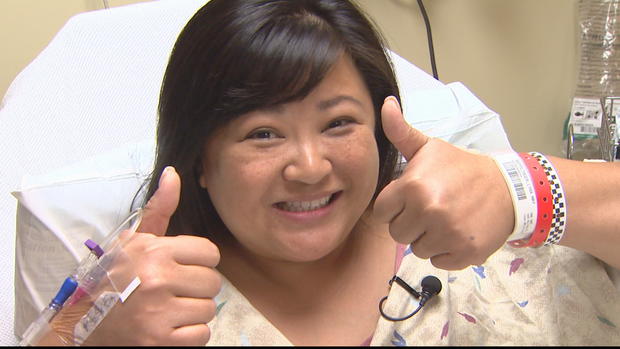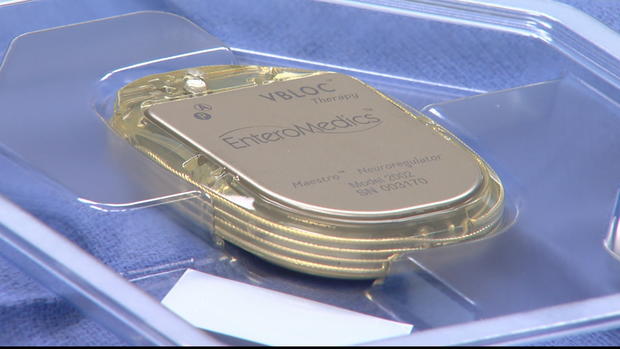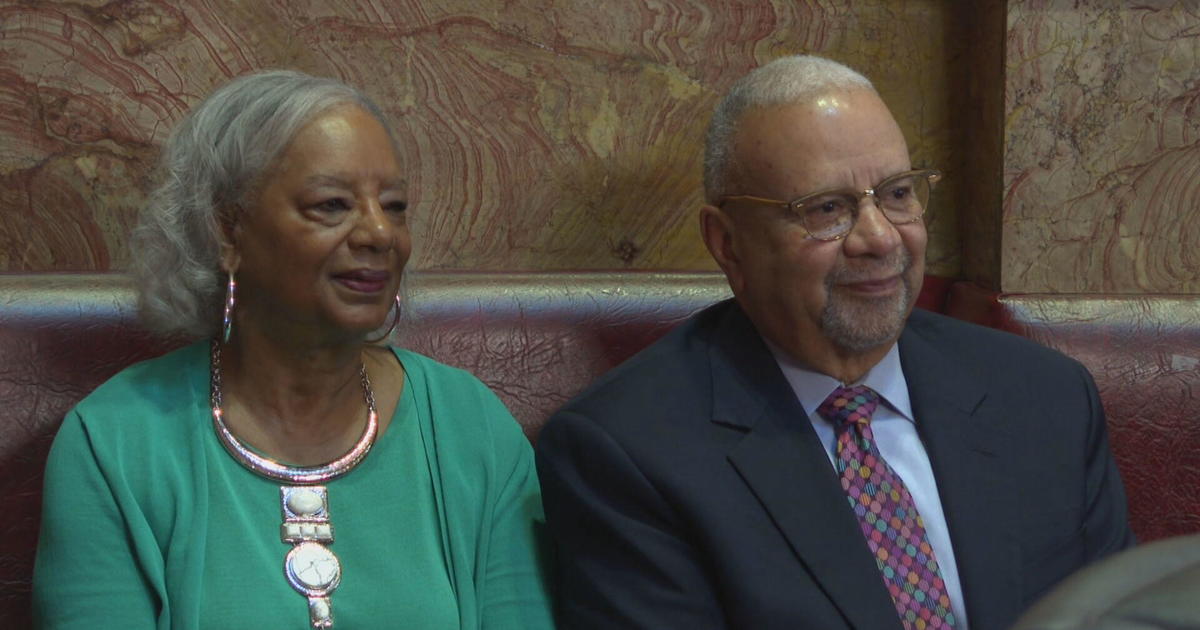Woman Hopes 'Hunger Pacemaker' Is Weight Loss Solution
CASTLE ROCK, Colo. (CBS4)- If you've tried everything and still can't lose weight, a small implant some call the "hunger pacemaker" may be the answer to fighting obesity. It was approved by the FDA in January and promises to zap away hunger.
CBS4 Health Specialist Kathy Walsh got to see the first vBloc procedure performed in Colorado.
"I'm ready. Let's do this," said Lyra Repplinger of Castle Rock.
It's unusual to be excited about an operation, but Repplinger was thrilled as she was preparing to undergo the procedure she hopes will finally end her lifelong struggle.
"I hope that food doesn't dictate my every waking thought," Repplinger said.
From childhood to marriage to motherhood the 40-year-old has been overweight.
"Weight loss has always been a part of my story. I've been on diets in junior high, high school and up until now even," she said.
It's been a roller coaster of food fads and calorie counting. She's now ready to stop the ride.
"I don't want to live like that. I just want to have that full satisfied feeling and go on with my life," said Repplinger.
On Aug. 10, Repplinger became the first person in Colorado to undergo the brand-new weight loss option.
"We are here to fight off diabetes and heart disease, " said Dr. Frank Chae, Repplinger's bariatric surgeon at Sky Ridge Medical Center in Lone Tree.
This would be his first time performing what's called the vBloc procedure. It's implanting what some consider a pacemaker for the stomach.
Through just a few small incisions, Chae attached two lead wires on the vagus nerve in the stomach, that's the nerve that controls feelings of hunger and fullness.
He then implanted a pulse generator the size of a deck of cards in Repplinger's chest.
The device is designed to generate an electrical pulse to block the communication between the stomach and the brain, helping control hunger. It is controlled outside the body.
"It's adjustable, it's reversible," said Chae, "This tool is something a person can use for the rest of their lives."
And Chae believes it's the answer for people like Repplinger who've tried everything to lose weight but don't want to have surgery, like gastric bypass, which changes organs.
"You get to go home the same day and there's no dietary restrictions that's required in other operations," explained Chae.
Six weeks later, Repplinger told us, "It has been great."
CBS4 caught up with her on her evening walk. She said she's lost 8 pounds.
"I feel like I get full a little bit faster and I stay full a lot longer," she said.
Her goal is to eventually shed 70 pounds.
"I feel like this is the answer for me," she said.
The vBloc procedure isn't for everyone and it is expensive, it can cost $20,000 to $25,000. Insurance may cover the device.
Kathy Walsh is CBS4's Weekend Anchor and Health Specialist. She has been with CBS4 for more than 30 years. She is always open to story ideas. Follow Kathy on Twitter @WalshCBS4.





